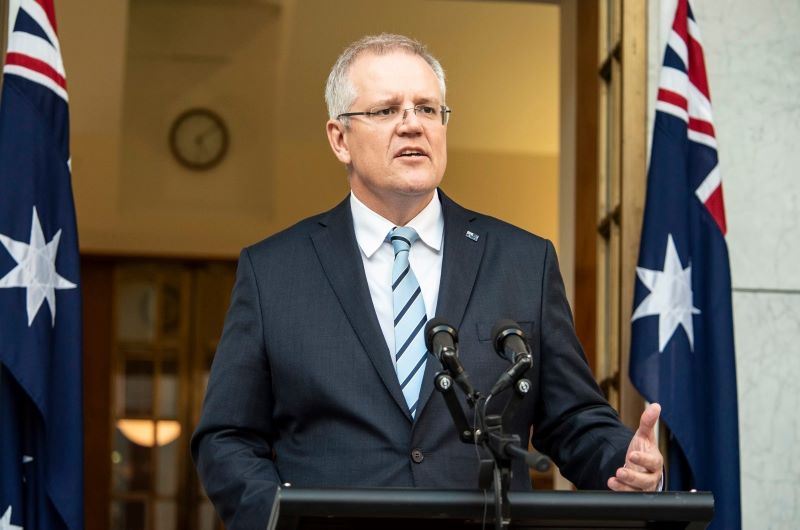Equipping professional accountants for sustainability
The International Federation of Accountants has developed a concise resource to guide accounting professionals and...
READ MORE
Prime Minister Scott Morrison said it’s time for the government to take a “step back, so Australians can move forward” after the past 18 months of lockdowns.

In a speech to industry and business leaders on Wednesday (November 24), Mr Morrison said the government is focused on a business and people-led economic recovery rather than one that is dictated by the government.
“Our core principle is that we support a business-led recovery. To unwind restrictions. To unleash the entrepreneurship of private enterprise. To enable you to invest and grow and shape your business for the future,” he said.
Mr Morrison said the first step in loosening these restrictions is the return of fully vaccinated, eligible visa holders, skilled workers and international students from December 1 as the first step in that process.
“We’ve averted the nightmare scenario of a scarred labour market. Our actions to support our economy, and according to Phil Lowe at the Reserve Bank of Australia, saved at least 700,000 jobs,” Mr Morrison said.
He continued that the RBA had forecast the Australian economy will now grow by 5.5% next year, and unemployment is forecast to fall to 4% by the June quarter of 2023.
“Compared with the end of 2019, household cash savings have increased by $185 billion and business cash holdings have increased by $145 billion by the end of August 2021,” he said.
Mr Morrison said the government will be focusing on economic growth and job creation through its Economic Recovery Plan by providing greater incentive to businesses and individuals through the tax system - encouraging investment and reforming income taxes, including with the abolition of an entire tax bracket.
The government is committed to investing in infrastructure and skills and will be aided by the $110 billion infrastructure investment pipeline “that is hitting the deck”.
Mr Morrison said the government is also committed to investing in people and predicted the JobTrainer Fund will support 460,000 Australians to upskill and reskill.
“We’ve currently got 217,000 trade apprentices currently in training. Now, that comes off the back of $3.9 billion in investment to boost apprenticeship commencements,” he continued.
To secure Australia’s place in the global economy, Mr Morrison said embracing a digital economy is imperative.
“We need to secure our place in the data and digital economy. We’ve seen almost nine in 10 Australian firms adopt new technologies. A third of Australian businesses expanded their online presence in the first three weeks of the pandemic. And we’ve seen the tech sector now grow at four times the rate of the rest of the economy,” he said.
“The government’s Digital Economic Strategy is laying the foundations for Australia to be that leading digital economy by 2030.
“We will shortly release a whole-of-economy Data Strategy to complement the Digital Economy Strategy, because we know data, as you know, is the lifeblood of our digital future.”
Moving towards a net-zero economy is also important and Mr Morrison said the government’s $464 million investment in Clean Hydrogen Industrial Hubs will bring together producers and users to drive down costs of production and stimulate innovation.
“And we are making the needed investments to drive that technology, not through taxes. And over the next decade, Commonwealth investment of more than $21 billion is expected to unlock more than $80 billion of private and public sector investment, including in clean hydrogen, ultra low-cost solar, carbon capture and storage, and energy storage,” he said.
Finally, Mr Morrison said the government's Modern Manufacturing Strategy has set out clear priorities and leverages the nation’s strengths and resources to build new sources of growth.
“We've identified six areas where we believe we have that comparative advantage, strategic interest or capacity to harness the opportunities that are there,” he said.
“Medical products, food and beverage, recycling and clean energy, resources, technology and critical minerals processing, defence and space. Instead of spreading taxpayer dollars thinly across the economy where everybody gets a prize, we are focusing investment in sectors where we can build scale and have a real impact and draw in that private investment that can have certainty about where we're focusing our efforts.”